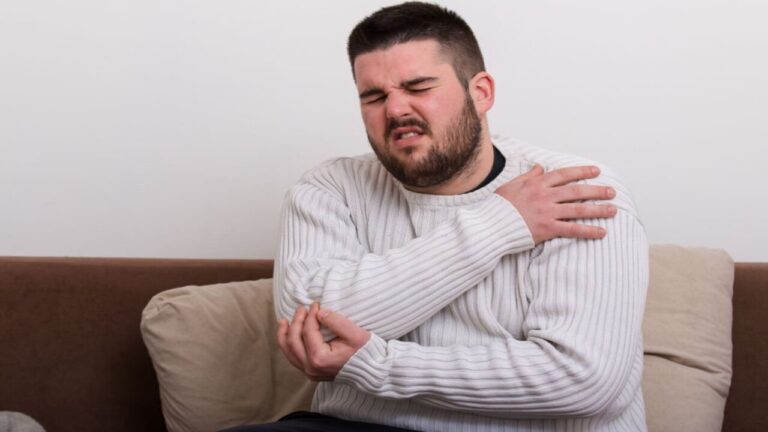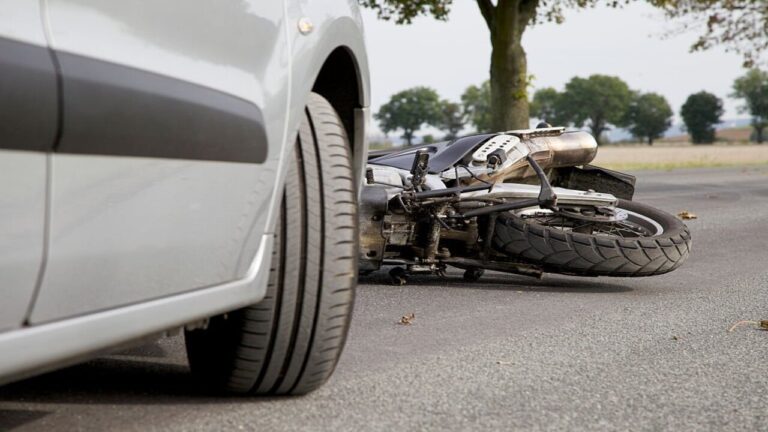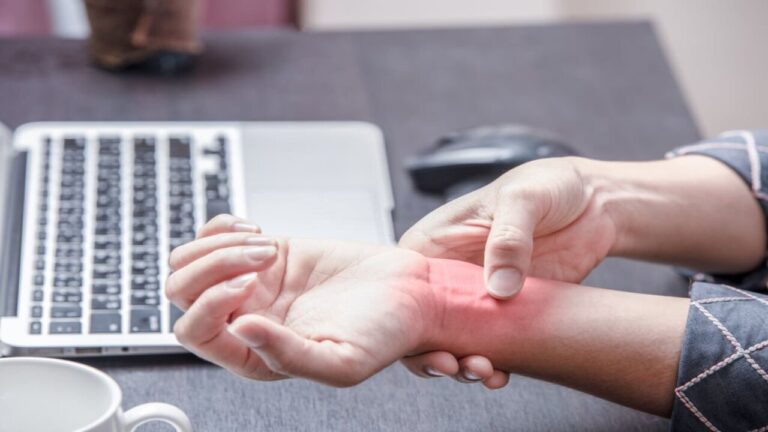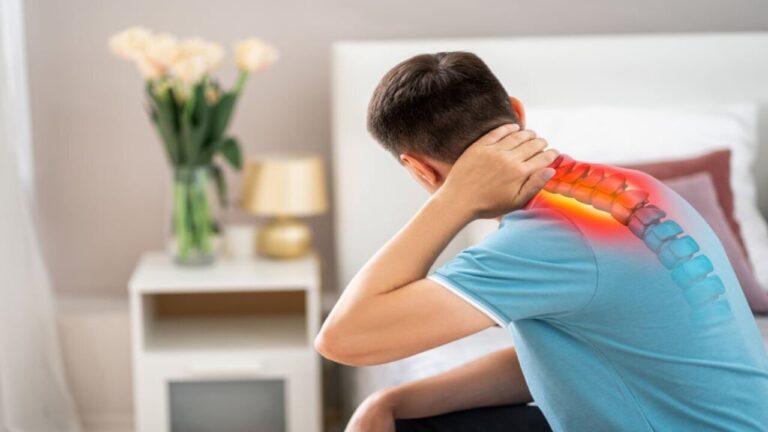
Muscle strains, also called pulled muscles, are painful injuries that can compromise your ability to move freely. Left untreated, they can worsen and cause various complications in your daily life. To avoid unpleasant consequences, it’s helpful to understand the importance of treating muscle strains immediately.
What Is a Muscle Strain?
According to MedlinePlus, a muscle strain is a tear in a muscle or tendon caused by twisting, pulling, stretching, or overuse. While some muscle strains can be treated with heat, cold, rest, and over-the-counter painkillers, consider seeking a medical evaluation following a muscle strain injury, especially if your symptoms are severe or last more than a week or two.
Signs and Symptoms of a Muscle Strain
Muscle strain symptoms tend to be localized to the muscle tear, but some can radiate pain even to distant parts of the body. If you have any of the following signs or symptoms of a muscle strain, you should consider seeking medical care:
- Localized pain or pain that radiates from the torn muscle
- Swelling
- Muscle spasms
- Reduced mobility
- Redness or bruising
- Muscle weakness
- Pain when moving the affected muscle
What Is the Difference Between a Muscle Strain and a Sprain?
Muscle strains and sprains are often used interchangeably. Both injuries feature the same symptoms, but sprains are damaged ligaments, while strains are damaged muscles or tendons. The distinction is important because treatment can differ depending on the extent and type of tissue damage.
What Causes Muscle Strains?
According to Translational Medicine, muscle strains are extremely common in high-demand sports. In fact, strains may account for as much as 55% of acute sport-related injuries. Other causes of muscle strains include:
- Motor vehicle accidents
- Slips, trips, and falls
- Bicycle accidents
- Workplace injuries
- Overuse and repetitive motion
- Lack of flexibility
- Poor posture or body mechanics
- Insufficient stretching, strength, or warm-up activity
Why Is It Important to Treat Muscle Strains Immediately?
If you fail to treat a muscle strain as soon as possible, you could resume activity too soon. Muscle and tendon tears that do not fully heal are more susceptible to re-injury.
Even if the affected tendon or muscle heals completely, you risk re-injury if you do not stretch and strengthen the affected and supporting muscles. Without physical therapy, you could face repetitive or chronic injuries that grow worse over time.
Structural changes can also occur when strains are untreated. Your other muscles and joints may move differently to accommodate the damaged tissues. As a result, you may experience severe long-term mobility issues, pain, weakness, and re-injury. Unusual wear on joints and muscles can lead to muscle injury complications, such as osteoarthritis, calcification, infection, fibrosis, and muscle herniation.
How Do Doctors Diagnose Muscle Strains?
If you exhibit signs of a muscle strain, your doctor must locate the torn muscle or tendon to provide appropriate treatment. They may use a series of diagnostic methods to determine the location, extent, and severity of your muscle strain. These methods could include:
- X-rays
- Ultrasound imaging
- Computer tomography (CT) scans
- Magnetic resonance imaging (MRI)
In addition to imaging, the doctor can conduct a physical examination to understand your level of pain and range of mobility. Based on the findings, your doctor may prescribe treatment in the form of pain medications, chiropractic care, physical therapy, or surgical intervention.
How to Treat Muscle Strains
Depending on the severity of your injury, you may not become aware of the strain until a few days after the injury. If you experience symptoms associated with muscle strain, you may want to:
- Ice the affected area
- Take over-the-counter nonsteroidal anti-inflammatory drugs (NSAID) for pain and swelling
- Apply a compression bandage
- Rest the affected limb
Although they provide immediate relief, these methods don’t get to the root of the problem, so we encourage you to reach out to us. We can build a treatment plan that addresses your needs. The severity and location of a muscle strain largely determine the treatment your doctor will recommend.
Physiotherapy Treatments
Physiotherapy methods such as massage therapy and electrical stimulation can promote muscle healing and circulation while your muscles and tendons repair themselves.
As your healing progresses, your physiotherapy treatments will begin to incorporate stretches, strength training, and resistance training. The goal of these methods is to increase your strength and flexibility at a slow, measured pace. By strengthening the affected muscle and surrounding tissues, you reduce the potential for re-injury.
Chiropractic Adjustments
Some treatment plans may incorporate chiropractic adjustments to realign the joints affected by your muscle strain injury.
According to the Journal of Manipulative & Physiological Therapeutics, chiropractic adjustments can improve movement, and Scientific Reports explain that they can alleviate pain responses in injured patients.
Phases of Muscle Strains Treatment
Our patients with muscle strain injuries can typically expect to go through these four stages of treatment:
- Acute phase: We address the problem right away to provide immediate relief. We may show you different stretches and use massage therapy.
- Rehab phase: We work to improve your range of motion and joint function with light exercises and some of the techniques we used in the acute phase.
- Strengthening phase: Once you start feeling like yourself again, we can start incorporating strength training to build muscle to prevent re-injury.
- Maximum medical improvement (MMI): You have gotten everything you can out of treatment.
Flare-ups and setbacks throughout treatment are expected, so don’t feel discouraged if you have days where you’re extra sore. It’s all part of the process.
Naples Community Injury Center Can Treat Your Muscle Strain Injuries
If you suffered a muscle strain, our team of medical doctors can create a unique plan of combined chiropractic and physiotherapy techniques to reduce your discomfort and help you feel better than ever.
Contact Naples Community Injury Center using our online form or call (239) 631-5445 to find out how we can help with your muscle strain injury.







